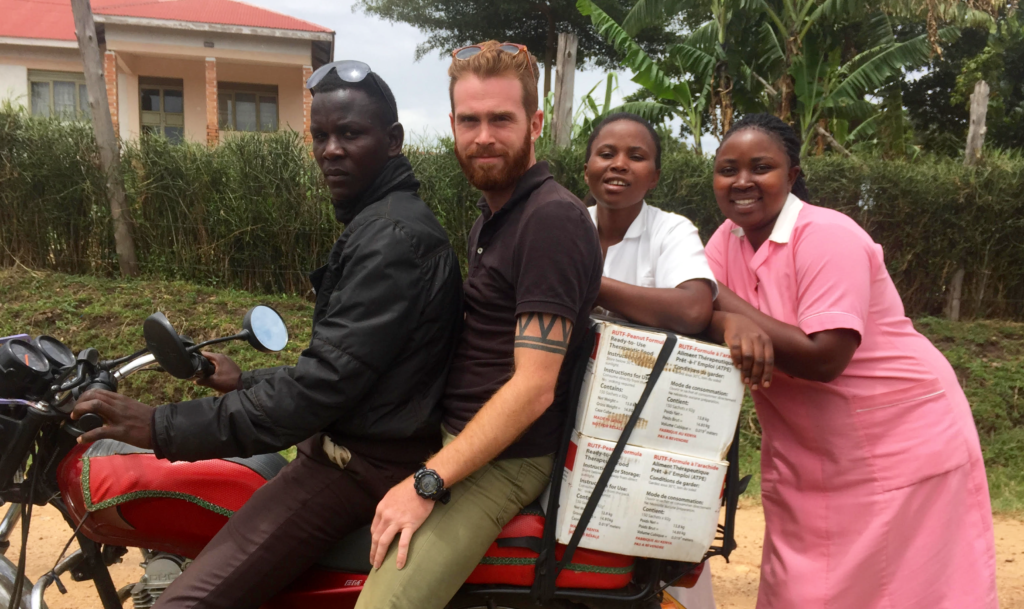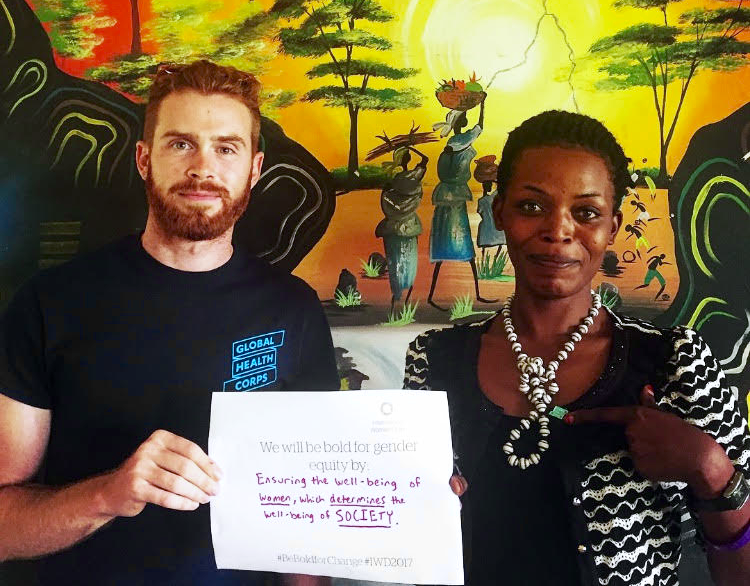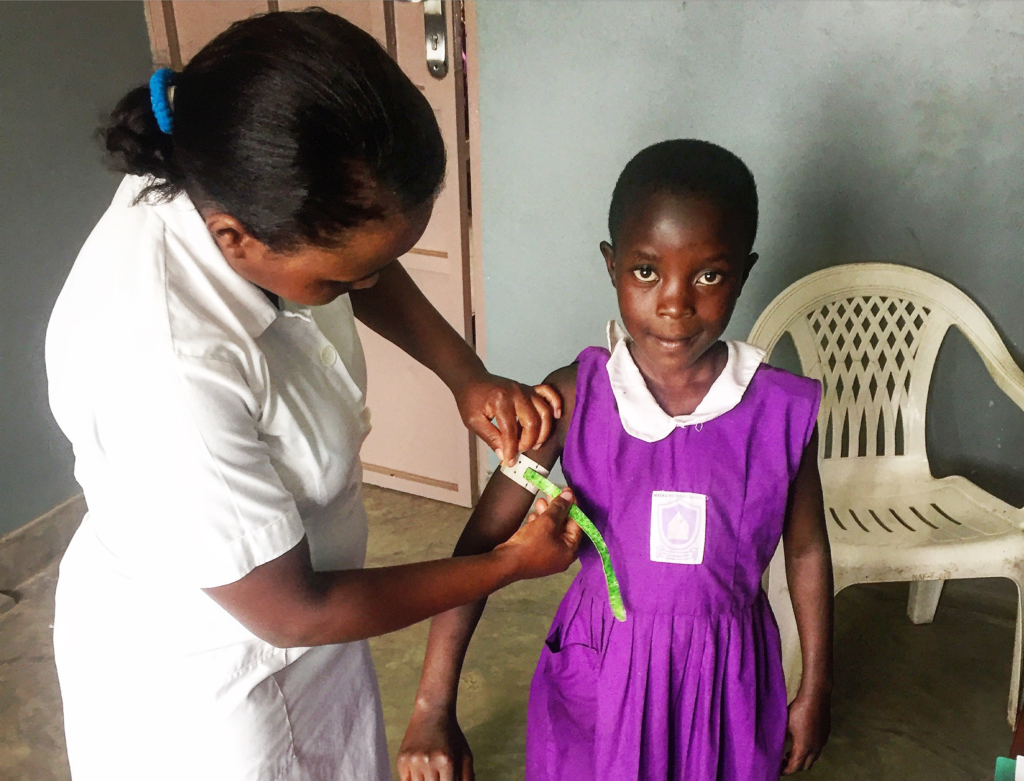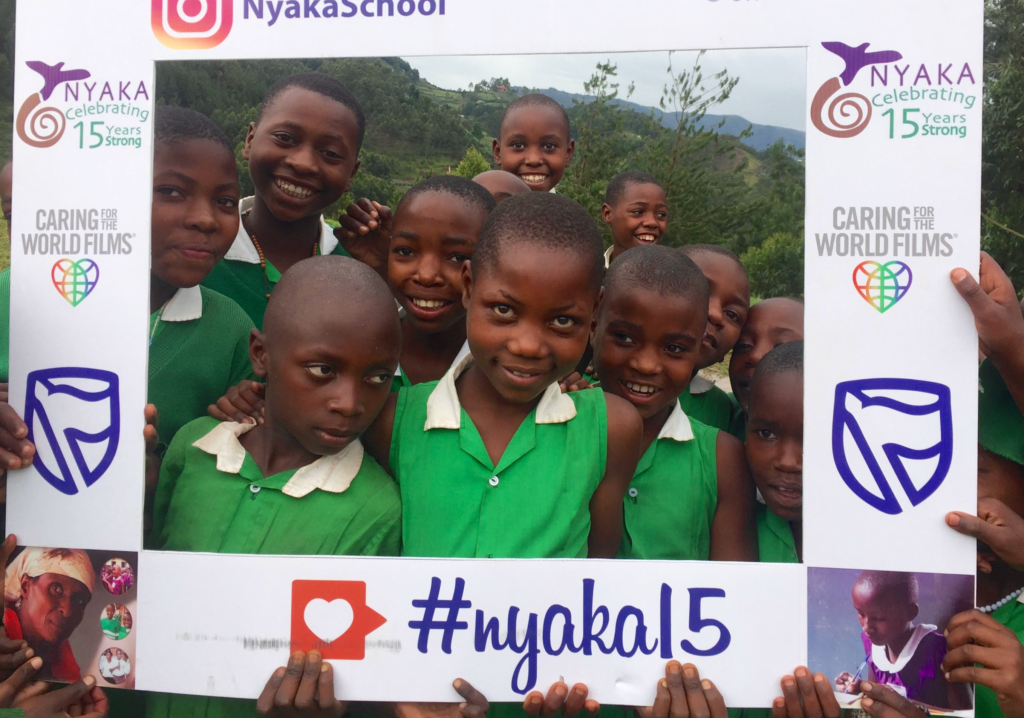Global Health Corps is a leadership development organization focused on creating health equity around the globe. GHC fellows are selected from a competitive candidate pool to work with high-impact health organizations in Malawi, Rwanda, Uganda, Zambia and the U.S. Many fellows come from non-traditional health backgrounds, filling critical gaps in their placement organizations. During this yearlong paid position, GHC fellows engage in intensive community building and leadership development training, while addressing health inequities.
Check out our interview with current GHC fellow, Colton Halverson, about what led him to Global Health Corps and some key take-aways from his time in Uganda.
1. What inspired you to apply for the Global Health Corps Fellowship?
After graduating with my bachelor’s in 2012, I began looking for ways to further my career and education while also making a positive impact in the world. I applied to serve as a Peace Corps volunteer and was selected to serve in Guyana beginning in 2013. After PC, I found myself looking for experiences that could help me gain more knowledge and grow in the field of global health. I applied for master’s programs that focused on public and global health, but I also learned about Global Health Corps.
Health equity was a big issue that I had noticed in South America, and the fact that GHC focused on equity made this fellowship opportunity stand out to me. Mismanagement of vital resources, total lack of data collection and monitoring, and outdated strategies for strengthening health systems had deeply affected the populations I worked with in Guyana, and I could only imagine the ways in which these issues affected other countries. In the GHC model, health is seen as a fluid, connected, ever-changing system that requires not only people with backgrounds in health, but people dedicated to improving all aspects of healthcare delivery. Combating health equity from a biocultural approach is a novel idea, but also pretty obvious in my mind. I found it comforting to know that other people felt the same way.
The social justice aspect of GHC was also appealing. To create change, you need to create a movement of people who are aware of the injustices that permeate the social fabric of society. Every year, GHC has over 100 fellows in East Africa and the US, and each year, the movement for health equity grows. GHC has all the things I would have put into a suggestion box while serving as a Peace Corps volunteer, and I am continually impressed by the support I receive from staff and the alumni community.
I came into the fellowship hoping to gain experience in the global health field, strengthen my cross-cultural communications skills, to ignite positive change in my organization and to build lasting connections with my community. So far, I feel that I have been successful in all these areas.
2. What have been some of the most eye-opening moments during your fellowship?
GHC works as the middle wo/man in your fellowship experience: you are employed by an organization while GHC offers support and professional development opportunities that aim to challenge the fellow. I was selected to work with a national organization in Southwest Uganda called the Nyaka AIDS Orphans Project. They tackle poverty through a holistic approach to community development. I work as their health program associate, tasked with building out Nyaka’s health program. I supervise two clinics, develop programs and strategies that improve monitoring and evaluation and resource management, and work to better accommodate the influx of patients we’ve seen this past year.
One of the most impactful changes I have been a part of is improving monitoring and evaluation, resources and support for HIV positive students within our schools. Now, blood tests for positive students happen more frequently to evaluate CD4 counts. HIV positive students who are most at risk receive specific meals at schools and within the home to prevent malnutrition and contraction of opportunistic infections. Homes are also inspected for factors that hinder progress.
We are also proposing a Public Health Committee funded by the Ugandan government. The clinic plans to use the funding to train and employ health education workers from various sub-counties that the clinics serve. These representatives will provide basic care and education as well as recommending referrals to either hospital or clinic based on conditions. We hope funding is awarded in the coming months.
Day to day life in Kambuga, Uganda is always different. Activities range from working in our clinics, assisting a nurse or social worker in Nyaka schools, visiting “grannies” running micro-financing projects or conducting site visits to remote placements. Some of the most prominent experiences I’ve had have come from the gradual improved health statuses of HIV positive students within our schools. I am continually honored to play a role in eliminating a major barrier to education and future opportunities.
3. What tips would you give others applying to the Global Health Corps Fellowship
Each year, the number of people who apply to Global Health Corps increases, with over 13,000 applications received for the 146 spots in the 2017-2018 fellowship year. If you are selected as a semi-finalist, you will first be interviewed by a current or past GHC fellow. Provided you make it past that round, the organization will decide if you have what they are looking for.
I had the opportunity to review applications this year and I was overwhelmed by the amount of competitive applications for the position I was reviewing. While it’s not a core requirement in applying, one of the main factors I considered in my decision was experience after college. Many resumes only listed positions held while in school, but having a year or two in the professional workforce really stood out to me.
I would also admit to recommending applicants who didn’t have as much experience as other candidates, but were able to write compelling essays that conveyed a true passion for health equity and social justice. Therefore, my main tip would be to ensure that your passion comes through in your writing. Having the ability to adapt and innovate, which is one of GHC’s core values, is extremely important when it comes to being a successful fellow. I think my application stood out because I had significant experience within the field I was applying to, and because I was able to convey a vested interest in global health. My previous experience aligned perfectly with what Nyaka was looking for in a fellow, as well as what GHC expects from a fellow. I am humbled to be part of this community of change-makers.
Interested in applying? Bookmark Global Health Corps to your ProFellow account for updates.
Colton Halverson grew up in Garrison, Kentucky. While studying public health at Morehead State University, he served as vice president of the health honorary Eta Sigma Gamma.. Upon graduation, Colton joined the Peace Corps and served in Guyana, South America. Upon completion of his Peace Corps service, Colton worked as the Health Education Coordinator for an independent health department in Kentucky. There, he headed a needle exchange program targeting mother-to-child transmission of Hepatitis C, HIV, and other infections commonly acquired from IV drug use. Currently, Colton is completing a fellowship with Global Health Corps in Southwest, Uganda with the Nyaka AIDS Orphans Project. In his spare time, Colton enjoys adventure sports such as cycling and rock climbing. He plans to climb the Rwenzori mountain range before his fellowship concludes in July.
© Victoria Johnson 2017, all rights reserved



